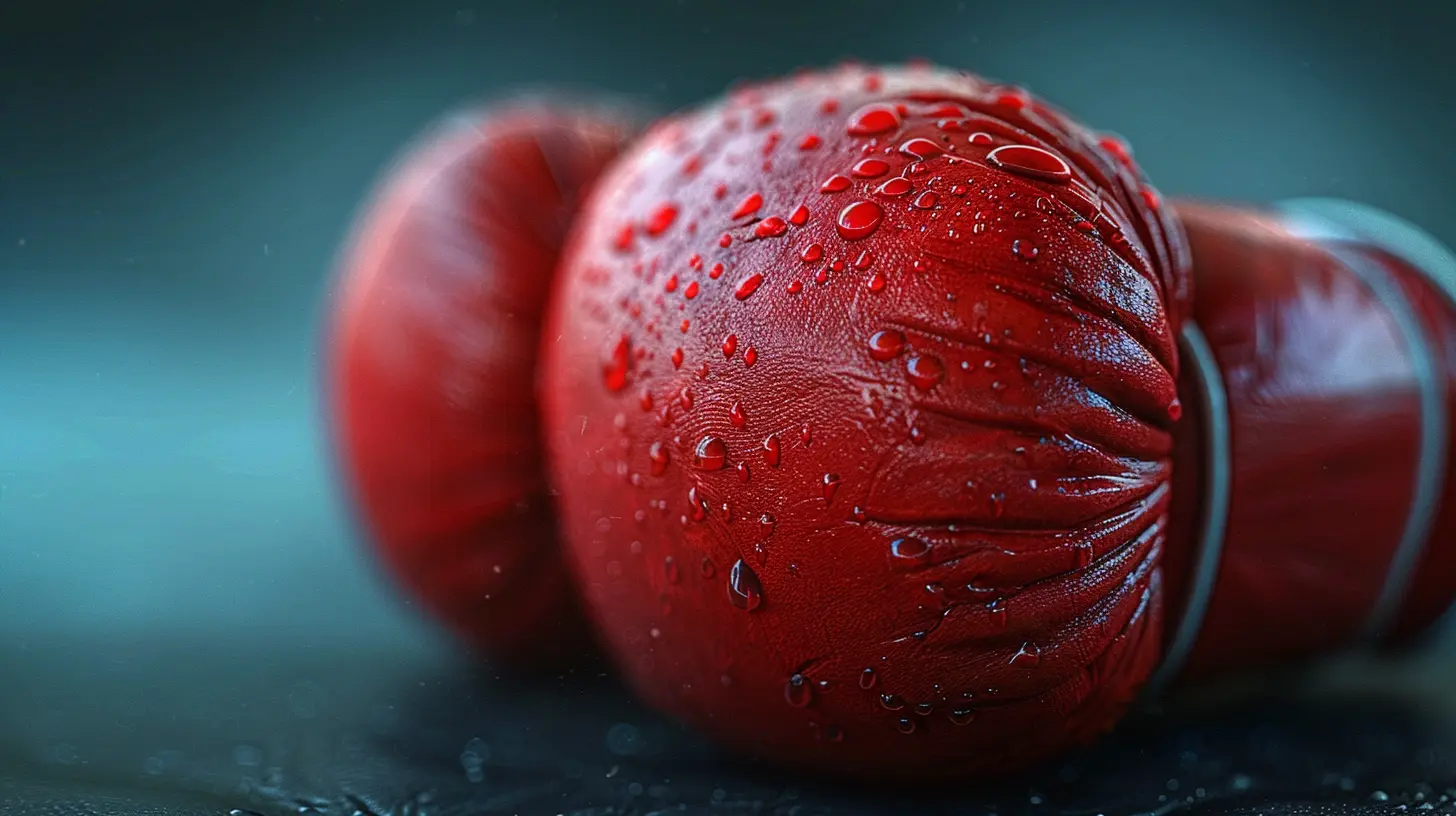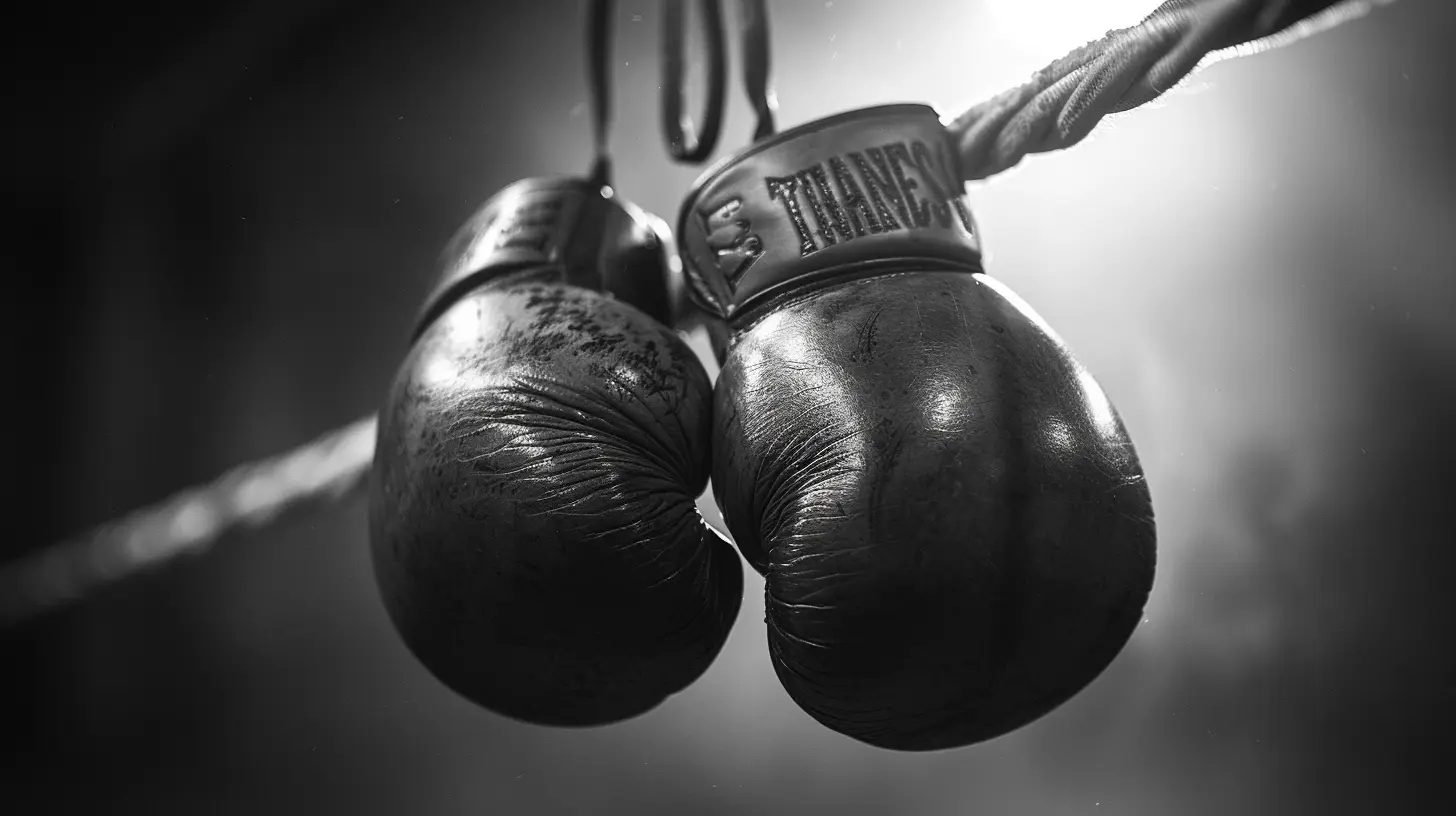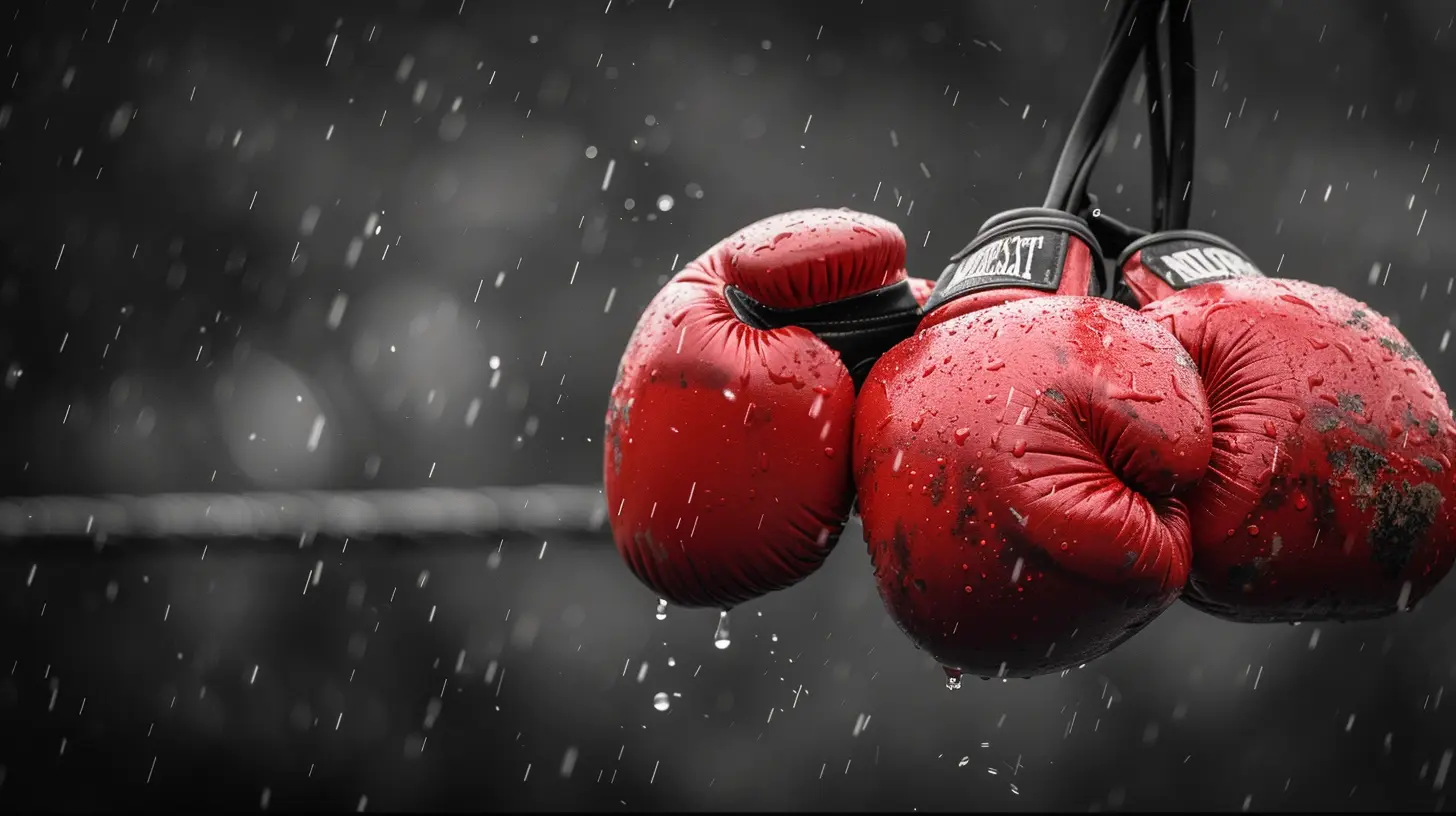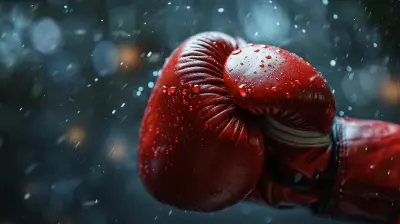From Amateur to Pro: Navigating the Boxing Journey
9 January 2025
Boxing is more than just a sport; it’s a lifestyle, a test of endurance, mental strength, and sheer willpower. From the outside, it may seem like just two people swinging punches in a ring, but anyone who’s ever put on a pair of gloves knows there's so much more to it.
If you’ve ever dreamed of going from being an amateur boxer to a professional, you’re in for one heck of a journey. Becoming a pro isn’t just about training harder. It’s about transforming your mindset, honing your skills, and navigating the intricate world of boxing.
So, how exactly do you make that leap from amateur to pro? Let’s break it down step by step, glove by glove.

The Amateur Boxing Phase: Laying the Foundation
Before we start talking about the professional level, let's first focus on where everyone starts: as an amateur. This is your foundation. Think of it as the training wheels stage of your boxing career. You wouldn’t expect to jump into a pro league without mastering the basics, right?1. Learning the Basics
Every boxer starts the same way—learning the fundamentals. Your jab, cross, footwork, and head movement are your bread and butter. In amateur boxing, it’s all about perfecting these basics. You’re not trying to knock someone out; you’re trying to score points and win rounds. Consider this phase the core of your boxing education.The amateur phase is where you get familiar with the rules of the sport, the techniques, and—yes—how to take a punch. You’ll be competing in short, fast-paced bouts where the emphasis is on speed, accuracy, and defense. It’s not just about swinging wildly; it’s about strategy and control.
2. Building Stamina and Fitness
The physical fitness required for boxing is on another level. You need to be in peak condition, and that’s something you’ll perfect in the amateur phase. Endless hours of cardio, strength training, and sparring will become your new daily routine.You’ll often hear trainers say, "Boxing is 90% mental and 10% physical." However, that 10% physical? It demands 110% effort. Your stamina, speed, and endurance will make all the difference in those last few rounds when you're running on fumes.
3. Getting Ring Experience
Experience in the ring is invaluable. The more bouts you have under your belt, the better. In the amateur phase, you’ll fight against a wide variety of opponents, all with different styles, strengths, and weaknesses. This is where you’ll learn how to adapt and strategize on the fly.Amateur matches are usually shorter than pro matches—3 rounds of 3 minutes each—so you’ll need to be quick on your feet and learn how to pace yourself. It’s one thing to practice in the gym, but nothing compares to the adrenaline of a real fight.
4. Developing Mental Toughness
Boxing is as much a mental game as it is physical. Stepping into the ring is nerve-wracking, and it takes serious courage to face an opponent who’s trying to knock you out. The amateur phase is where you develop mental toughness. You’ll learn to control your emotions, stay calm under pressure, and push through when the going gets tough.
Making the Leap: Transitioning to Professional Boxing
So, you’ve spent years honing your craft in the amateur circuit. You’ve racked up a decent number of fights, and maybe even a few titles. Now you’re ready to make the leap to the big leagues. But becoming a professional boxer isn’t as simple as flipping a switch. It’s a whole new ball game.1. Preparing for Longer Fights
One of the biggest differences between amateur and professional boxing is the length of the fights. In the amateur ranks, you’re used to quick, 3-round bouts. In professional boxing, fights can go up to 12 rounds. That’s a huge jump in terms of stamina, strategy, and mental endurance.To prepare for longer fights, you’ll need to adjust your training. You’ll spend more time building your cardiovascular endurance, working on pacing, and perfecting your ability to conserve energy. You’ll also need to adjust your mindset. Professional boxing is a marathon, not a sprint. You can’t afford to come out swinging wildly in the first few rounds, or you’ll be gassed by the sixth.
2. Polishing Your Skills
By the time you’re ready to go pro, your basic skills should be second nature. Now it’s time to polish them. Professional boxing is all about precision. You’ll need to be more accurate with your punches, more strategic with your footwork, and more disciplined with your defense.At this stage, you’ll also want to start developing your own unique style. Are you a counterpuncher, a pressure fighter, or maybe a defensive genius like Floyd Mayweather? Find what works for you and perfect it.
3. Working with a Professional Trainer and Management
As an amateur, you might have worked with a local coach or trained at a community gym. But as a professional, you’ll need a dedicated team behind you. This includes a professional trainer, a manager, and potentially even a promoter.Your trainer will help you refine your skills and prepare for specific opponents. Your manager will handle the business side of things, negotiating contracts and getting you the right fights. And if you’re really serious about making it big, you’ll need a promoter to help build your brand and get you exposure.
4. Understanding the Business Side of Boxing
Professional boxing isn’t just about what happens in the ring. There’s a whole business side to the sport that you’ll need to navigate. This includes signing contracts, negotiating purses, and—yes—dealing with promoters.It's important to surround yourself with people who have your best interests at heart. Boxing history is littered with stories of fighters who were taken advantage of by shady promoters or managers. So, make sure you have a solid, trustworthy team in your corner.

The Mental Shift: Adapting to the Pro Lifestyle
The jump from amateur to pro isn't just physical—it's also mental. The stakes are higher in the professional ranks, and the pressure can be intense. You’re no longer fighting for medals and trophies; you’re fighting for your livelihood. Every fight could be the difference between moving up the ranks or fading into obscurity.1. Learning to Handle Pressure
As a professional boxer, you’ll be fighting in front of larger crowds, under brighter lights, and with more on the line. The pressure can be overwhelming, but learning to control your emotions and stay focused is key. Visualization techniques, meditation, and working with a sports psychologist can help you stay mentally sharp.2. Dealing with Losses
In the amateur phase, losses are a learning experience. But in the pro ranks? Every loss can affect your career. It’s important to learn how to bounce back from defeats and not let them define you. Even the greatest fighters like Muhammad Ali, Mike Tyson, and Manny Pacquiao have tasted defeat. What makes champions is how they come back stronger.3. Staying Hungry and Humble
Making it to the pros is a huge achievement, but it’s just the beginning of the journey. You need to stay hungry, continue learning, and keep working hard. Complacency is the enemy. There will always be someone younger, faster, and hungrier than you gunning for your spot. Stay humble and keep grinding.
The Road Ahead: What to Expect as a Professional Boxer
So, you’ve made the jump from amateur to pro. Congratulations! But now the real journey begins. The road ahead will be filled with ups and downs, victories and losses, but as long as you stay focused and dedicated, the sky’s the limit.1. Building Your Record
In the early stages of your pro career, your goal will be to build a solid record. This means taking on fights that will give you experience and exposure. You won’t be fighting for world titles right away, but every fight is a step toward that goal.2. Climbing the Ranks
As you start to build your record, you’ll move up the ranks. Depending on your weight class and region, you’ll need to compete in regional, national, and international bouts to gain recognition. Eventually, if you keep winning, you’ll get a shot at a title.3. Staying Ready for Opportunities
In professional boxing, opportunities can come when you least expect them. Be prepared to take short-notice fights and stay in shape year-round. You never know when you’ll get the call for a big fight that could change your career.Conclusion: The Journey from Amateur to Pro
Becoming a professional boxer isn’t easy. It takes years of dedication, training, and mental toughness to make the leap from the amateur ranks. But for those who are willing to put in the work, the rewards can be incredible.From mastering the basics to navigating the business side of boxing, the journey from amateur to pro is a challenging but rewarding one. So, lace up your gloves, stay focused, and keep fighting. The road to the top may be long, but with enough grit and determination, you can make it.
all images in this post were generated using AI tools
Category:
BoxingAuthor:

Onyx Frye
Discussion
rate this article
17 comments
Thalyn McPhail
This article beautifully captures the essence of the boxing journey. It highlights the dedication and resilience required to transition from amateur to professional. The insights shared are invaluable for aspiring boxers. Thank you for shedding light on the challenges and triumphs of this demanding sport! Looking forward to more insightful pieces.
February 5, 2025 at 11:51 AM

Onyx Frye
Thank you for your kind words! I'm glad the article resonated with you and provided valuable insights. Stay tuned for more!
Miriam Oliver
Great insights, inspiring journey!
January 30, 2025 at 9:28 PM

Onyx Frye
Thank you! I'm glad you found it inspiring!
Anastasia Adams
Dedication and resilience define the path from amateur to pro.
January 25, 2025 at 8:21 PM

Onyx Frye
Absolutely! Dedication and resilience are essential qualities that pave the way for growth and success in boxing.
Denise McMillan
Great insights on the challenges of becoming a pro!
January 19, 2025 at 5:11 AM

Onyx Frye
Thank you! I'm glad you found the insights helpful.
Jessamine Ross
Ah, yes! Because who wouldn’t want to get punched in the face for a living? Sign me up for the pro journey!
January 16, 2025 at 11:59 AM

Onyx Frye
It's definitely not for everyone, but for many, the passion and discipline make it worth it!
Rebecca McFarlane
Ah, yes, because who wouldn’t want to get punched in the face for a living? The glamorous life of a pro boxer awaits!
January 16, 2025 at 4:36 AM

Onyx Frye
Boxing isn't just about the punches; it's about discipline, passion, and the pursuit of greatness. Every journey has its challenges!
Kova Good
Great article! The journey from amateur to pro in boxing is filled with challenges and triumphs. Your insights on discipline, perseverance, and self-belief resonate deeply. Every punch thrown brings you closer to your dreams—keep pushing forward, and remember, every champion was once a contender!
January 15, 2025 at 12:40 PM

Onyx Frye
Thank you so much for your kind words! I'm glad the insights resonated with you. Your support means a lot!
Monica Cooper
This article effectively captures the challenges and triumphs of transitioning from amateur to professional boxing. It highlights the importance of discipline, training, and mental resilience. A must-read for aspiring boxers who need realistic insights and motivation to navigate their own journeys in the sport.
January 15, 2025 at 4:05 AM

Onyx Frye
Thank you for your thoughtful feedback! I’m glad you found the article insightful and motivating for aspiring boxers.
Anisa Meyers
This article offers insightful guidance for aspiring boxers, highlighting key steps in transitioning from amateur to professional. It effectively emphasizes the importance of training, mentorship, and mental resilience. A must-read for anyone serious about making their mark in boxing!
January 14, 2025 at 7:36 PM

Onyx Frye
Thank you for your kind words! I'm glad you found the article helpful for aspiring boxers. Wishing all the best to those on their journey!
Yvette McGarvey
From rookie punches to championship dreams—it's a tough road! But if you're ready to sweat, bleed, and hustle, let’s get ready to rumble!
January 14, 2025 at 12:40 PM

Onyx Frye
Absolutely! The journey is filled with challenges, but dedication and hard work pave the path to success. Let's embrace the grind!
Katherine Rivera
This article provides invaluable insights into the journey from amateur to professional boxing. The detailed steps and personal anecdotes highlight the dedication required in this demanding sport. It's an inspiring read for aspiring boxers and fans alike, emphasizing the importance of perseverance, discipline, and strategic planning in achieving success.
January 13, 2025 at 7:22 PM

Onyx Frye
Thank you for your kind words! I'm glad you found the article inspiring and insightful. Your support means a lot!
Tabitha McKibben
Great insights on the transition from amateur to professional boxing! Your tips on training, mindset, and seeking mentorship are invaluable for aspiring boxers. Focusing on discipline and continuous learning will definitely help navigate this challenging journey. Keep up the excellent work!
January 12, 2025 at 1:23 PM

Onyx Frye
Thank you for your kind words! I'm glad you found the tips helpful. Wishing all aspiring boxers the best on their journey!
Shelby Sheppard
Transitioning from amateur to pro in boxing requires resilience, discipline, and an unwavering passion for the sport.
January 12, 2025 at 5:19 AM

Onyx Frye
Absolutely, those qualities are essential for success in boxing and truly define the path from amateur to professional.
Azriel Long
What an inspiring read! It's fascinating to explore the challenges and triumphs on the path from amateur to pro boxing. Each journey is unique—what's the most surprising aspect you've uncovered?
January 11, 2025 at 11:50 AM

Onyx Frye
Thank you! The most surprising aspect has been the resilience and adaptability of fighters; many overcome personal obstacles beyond the ring to achieve their dreams.
Oriana Pope
Great insights on the boxing journey! Your perspective on the challenges and triumphs from amateur to pro is both inspiring and informative. Looking forward to more articles like this!
January 11, 2025 at 4:55 AM

Onyx Frye
Thank you so much! I'm glad you found it inspiring. More articles are on the way!
Esme Patterson
Great article! It’s inspiring to see how passion and perseverance shape a boxer’s journey. Whether you’re just starting out or dreaming big, every step counts. Keep throwing those punches! 🥊✨
January 9, 2025 at 1:33 PM

Onyx Frye
Thank you! I'm glad you found it inspiring. Every step truly does count in this journey! 🥊✨
Dominique Lopez
What a fantastic read! The journey from amateur to pro in boxing is truly inspiring. It’s a rollercoaster of hard work, dedication, and overcoming obstacles. Your insights make it feel relatable; it reminds us all that every champion started somewhere. Keep fighting for your dreams, everyone! 🥊
January 9, 2025 at 5:09 AM

Onyx Frye
Thank you so much! I'm glad you found it inspiring. Every journey is unique, and your support means a lot! 🥊
MORE POSTS

The Best Young Talents to Watch in Football Today

How Sponsorship Deals Are Reshaping Football Economics

How Endorsements Impact the Careers of Professional Athletes

Off-Roading: The Ultimate Guide to Extreme ATV Adventures

Improving Your Parallel Turns: Drills for Precision and Control

Can Drafting a Rookie Save a Teams Season?

The Impact of Boxing on Physical and Mental Health

Surf Etiquette: What Every Surfer Should Know

The Race for Glory: Track Stars Who Set New Standards

The Importance of Defense: How to Avoid Getting Hit

Breaking Down the Latest Transfer Rumors in European Football